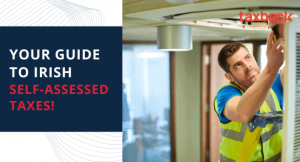Ireland’s Finance Act 2011 tackles tax offenders
*NOTE: As of 2022, this is blog is no longer relevant*
Code of Practice for Revenue Audits Amendment.
An amended Code of Practice for Revenue Audits has been released which illuminates the risks of non compliance with Revenue. The Code of Practice includes amendments required as a result of the new legislation introduced by the Finance Act 2011.
Prior to this, there had been concerns with regard to Revenue’s position in respect of the publication of cases where settlement had been agreed but not yet paid. The new legislation states that Revenue may proceed with publication regardless of whether or not the money has been paid.
Revenue aims to tackle tax evasion through audits and investigations. Not all cases result in prosecution and various factors are considered in the determination as to whether or not the taxpayer will be prosecuted. They include; the strength of available evidence, the time since the alleged offence, the likely length and expense of the trial, the level of culpability of the offender, the need for deterrence, and how open the offender has been with their disclosure.
The type of tax offences that are most likely to be prosecuted are:
· Deliberate omissions from tax returns
· False claims for repayment
· Use of forged or falsified documents
· Systematic schemes to evade tax
· Use of offshore bank accounts to evade tax
· Insidious schemes of tax evasion
· Failure (as distinct from minor delays) in remitting fiduciary taxes.
Other prosecutable offences include failure to file tax returns, failure to produce books and records when obliged to do so, failure to submit a Statement of Affairs when required to do so and providing false or misleading information to a Revenue official. Revenue provides a full list of all prosecutable offences here .
Self Review
Taxpayers are encouraged in the Code of Practice to review their tax affairs regularly and in the event that they determine any irregularities they should report these to Revenue. There are a number of options available to taxpayers in this regard to include: self correction; declaration of innocent errors; technical adjustment; ‘No Loss of Revenue’ claim; or qualifying disclosure.
These options can result in a reduction in the cost of settlements with Revenue. Advice from a tax professional is advisable in advance of such discussions with Revenue.
Further Measures
Finance Act 2011 also included a number of measures to tighten up on non compliance such as:
1. The introduction of a €3,000 penalty for individuals who make false claims for exemption, allowance, credit etc
2. The extension of the attachment of debt rules to allow Revenue to send notices of attachment of debt to employers i.e. Revenue may now instruct employers to collect unpaid tax bills from their employees via deduction through the payroll.
3. The introduction of new offences in relation to the use of computer software to alter records.
From the above, it would appear evident that there is an appetite for the active pursuit of non-compliant individuals. Therefore, it is more important than ever before for PAYE workers and self assessed taxpayers to ensure that they obtain reliable advice before filing refund claims and tax returns.
Please find the complete Code of Practise for Revenue Audit here. For more information please contact us at:info@taxback.com



